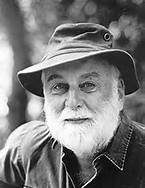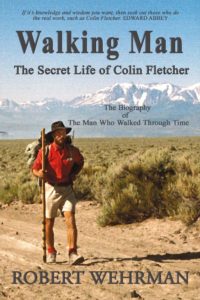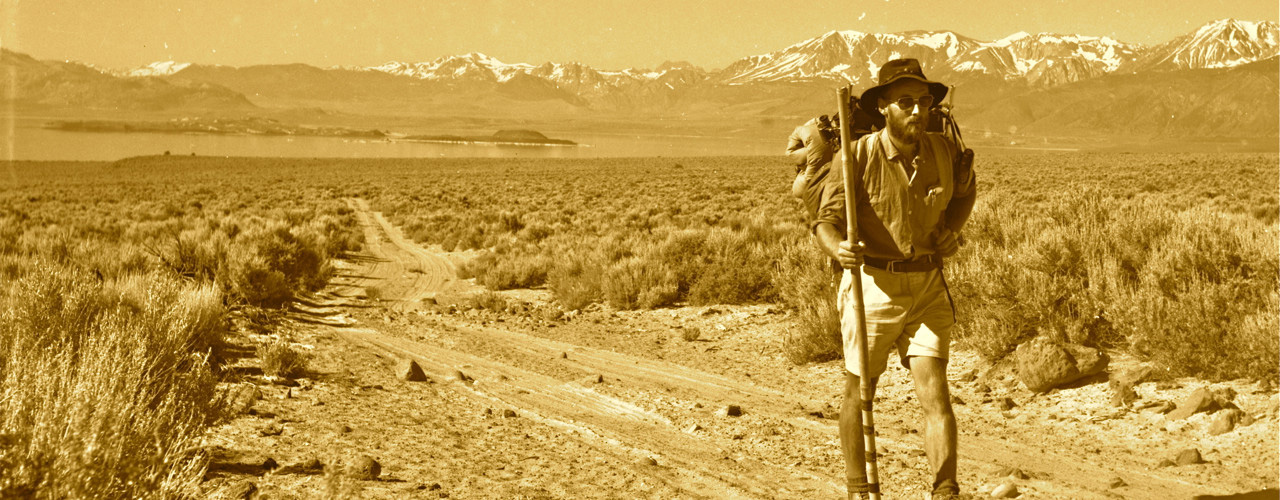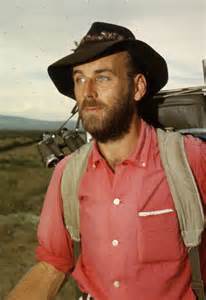THIS IS A BOOK I WON’T BE READING
Colin Fletcher is known as the “Father of Backpacking” and Robert Wehman has just published the only biography of the reclusive man.
You can purchase the book from Amazon as a Kindle version for $9.99 or paperback for $18.53. I have never heard of the author but the reviews have generally been very good.
I did buy it for a friend, but will pass on reading it myself.
WHY?
Background

First, let’s start with a little background. Fletcher wrote 10 books in his lifetime of which I have read 9 of them several times. The one book I did not read is The Winds of Mara, an account of the author’s time spent in Kenya’s Mara Animal Preserve observing wildlife, land, people and his reflection of what is good and bad, and his thoughts for the future.
It is not a book of interest to me.
Here is a listing of all his books in chronological order. Perhaps someday I will review some of them.
- (1964) The Thousand Mile Summer recounts Fletcher’s six month hike through California’s eastern area through deserts and mountains in 1958.
- (1968) The Man Who Walked Through Time chronicles his 1963 walk through Grand Canyon National Park, the first person to do this hike in one through hike. Harvey Butchart did it first through a series of section hikes over 17 years and his identification of routes made it possible for Fletcher to complete the hike.
- (1968) The Complete Walker thrust Fletcher into enduring fame with his comprehensive tome on backpacking techniques and equipment. This was the first of four “Complete Walker” books.
- (1973) The Winds of Mara
- (1974) The New Complete Walker
- (1981) The Man From the Cave. Fletcher finds a trunk in a remote desert canyon in Nevada. He begins a quest to find out who the owner of the trunk was and draws many comparisons between this man, Chuckwalla Bill, and himself. Many of the key locations in the book are areas in Southern California I have walked many times. One of my favorite books.
- (1984) The Complete Walker III (this is the best of the series).
- (1989) The Secret Worlds of Colin Fletcher contains several essays.
- (1997) River tells Fletcher’s 1989 trip hiking and rafting the entire length of the Colorado River (beginning with the source of the Green River, which flows into the Colorado).
- (2002) The Complete Walker IV, co-written with Chip Rawlins.
SHOULD WE READ BIOGRAPHIES?
One problem with a biography is the need for the author to get into the head of the subject. Can this be done? With modern day subjects it is usually not too difficult to piece together the chronological events of a person’s life with comprehensive investigation – but this doesn’t necessarily tell us who the subject really was. It takes a bit of expert psychology to figure this out, and often famous people leave a trail of red herrings to distract the investigator and hide what they want hidden. So readers beware.
Given that, many people enjoy reading about famous people. We often can learn more about what a person did to achieve the eye of the public and events in their lives can oft times be used to inspire us. As humans we are not perfect, and we can examine the experiences of others to help us not make the same mistakes or emulate what these people did well in their lives. For the backpacker, we can learn about our hobby from the writings of Fletcher and some readers may feel they can learn even more about living via an individual’s life, such as Fletcher’s.
However, Fletcher wrote many outstanding books, so perhaps his works stand on their own merit without need to examine his life through a biographer’s perspective. This would be in contrast to Harvey Butchart, who I mentioned earlier. Other than the people who knew Butchart personally, there is little he wrote to tell us about himself. He was a mathematician who wrote three trail guides to the Grand Canyon, which are written as a scientist would by providing just the facts. Little was known about Butchart until the publication of his biography by Elias Butler and Tom Meyers in 2007, Grand Obsession: Harvey Butchart and the Exploration of the Grand Canyon that I reviewed a few years ago. This is a must read book if you are interested in the Grand Canyon, hiking, backpacking, or climbing. In it we learn about the contentious relationship between Fletcher and Butchart.
Fletcher’s books are not simple “trail journals” of his adventures and his Complete Walker Series are not just about gear and how to use equipment. Fletcher is witty, opinionated, knowledgeable, cranky, curmudgeonly, funny, perceptive, observant, insightful, and just enjoyable reading. He addresses the “how” to backpack, but more importantly, the “why.” Fletcher never claims he was the “best” backpacker, not does he infer his methods are the way to backpack. What he did is write about backpacking and wild places better than anyone else. His works will tell us much about him as a human – if we know how to read a good book.
Herein lays the problem with people. They have not been taught how to read a good book. I know, this sounds crazy. Most people read books for information, just as they would read a newspaper, magazine or blog. Most people do not read a good book to understand. Fletcher’s works deserve the understanding approach to reading.
Understanding requires reading in between the lines of text, grasping the whole of the book by dissecting the small parts and connecting each part back into the complete work. Understanding sees bits in context and what is implied but not stated. Understanding captures the dappled color of words, the smell of places and times. Understanding Fletcher’s works is not about knowledge; it’s about skills, discovery, the nature of nature, the nature of man, and perhaps enlightenment. One must not just read Fletcher; one should strive to interpret his works to their own lives. A good book provides the reader, should they choose to do so, a dialogue with the writer. Understanding a good book really requires three readings.
The first reading is where the work should be broken down from its entirety and the reader analyses the parts. The next reading takes these parts and interprets them into a complete work – does each part make the entire work worth reading. Lastly we need to evaluate the entire work with a critical eye. What do we think about the author and do we agree with him or not. Fletcher’s books deserve this comprehensive treatment.
Once we truly understand Fletcher’s works – and they are significant for the backpacker, walker, environmentalist, or naturalist then I propose that Fletcher’s works stand on their own, we can understand the man, and thus there is no need to read a biography.
However
I don’t want to dissuade anyone from reading Wehman’s work. Apparently he was positively influenced by Fetcher’s books (a fanboy and backpacker himself), did meticulous research, and interviewed the important people (there were very few who really knew the man) in Fletcher’s life. You can buy it here:
This website may be compensated for linking to other sites for sales of products. As an Amazon Associate I earn a small fee from qualifying purchases at no additional cost to the purchaser.
If you haven’t read any of Fletcher’s books, his biography might be a good place to start and hopefully will encourage you to read Fletcher’s own words and read those words to truly understand.
Some books by Colin Fletcher himself
An Interesting Book About Harvey Butchart
Contains the story of him assisting Fletcher on his hike of the Grand Canyon and how that potential friendship fell apart.












